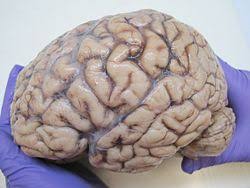
Everyday Activity Offers a Cognitive Boost, Study Finds
Physical activity, even during everyday tasks, can provide a short-term boost in brain processing speed, according to a new study conducted by researchers at Penn State College of Medicine. The study revealed that common activities, regardless of intensity, may improve mental reaction time, effectively reducing an individual's cognitive age by four years.
Published in the Annals of Behavioral Medicine, the study is unique in its focus on routine, day-to-day movements rather than solely moderate or vigorous exercise. It offers new insights into how even light activities like walking or household chores can influence cognitive health.
Real-Time Monitoring of Physical Activity and Cognition
For the study, participants were monitored using a smartphone app over seven days. Five times a day, they reported their recent physical activities and completed two brain games designed to measure cognitive functions.
The first game, a symbol-matching task, measured brain processing speed. Participants who had engaged in physical activity showed improved response times, demonstrating enhanced processing abilities. However, the second game, which tested working memory through a grid recall task, showed no notable improvements in accuracy post-activity, though participants responded more quickly.
Dr. Jonathan G. Hakun, the study's corresponding author and assistant professor at Penn State, highlighted how this approach leveraged real-world data collection through technology. He explained that the processing speed gains observed—equivalent to reversing four years of cognitive aging—underscore the immediate benefits of movement on mental agility.
Any Movement is Beneficial
Participants categorized their activities into light, moderate, and vigorous intensities. Light activities included walking, cleaning, and other low-effort tasks, while moderate and vigorous activities ranged from brisk walking to running and challenging hikes.
Dr. Vernon Williams, a sports neurologist at Cedars-Sinai Kerlan-Jobe Institute in Los Angeles, praised the findings, noting that the research underscores the value of all types of movement for cognitive health. He emphasized that the study reinforces the belief that any form of physical activity, not just structured exercise, can yield benefits.
How Physical Activity Enhances Cognition
Previous research has shown that regular exercise positively affects cognitive function, including processing speed. Dr. Williams explained that these benefits are often linked to the release of brain-enhancing chemicals, improved cardiovascular health, and increased blood flow.
In the short term, the study suggests that physical activity may enhance alertness and readiness, improving attention and task performance. While long-term neurobiological changes occur over months or years, the immediate effects likely stem from a heightened state of cognitive readiness triggered by movement.
A Call to Move More
The findings reinforce the idea that movement, in any form, is a powerful tool for maintaining brain health. Whether it's a brisk walk, a household chore, or a short jog, integrating more activity into daily routines could help individuals stay mentally sharp and reduce the cognitive effects of aging.